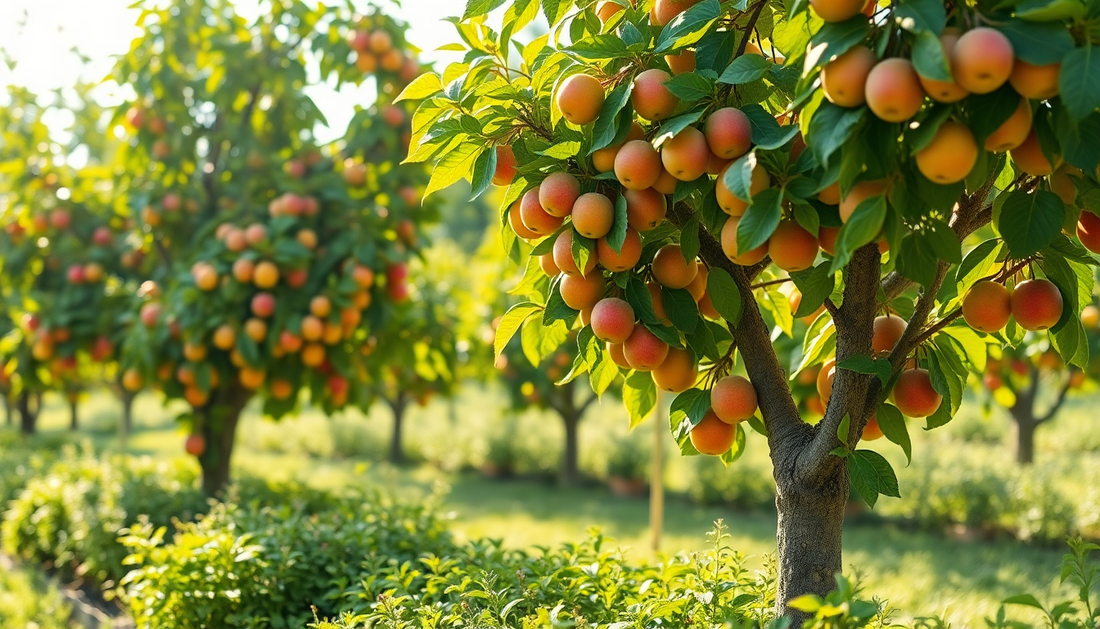
Keeping Hornets and Yellow Jackets Away from Your Fruit Trees
As the warm weather approaches, many gardeners and fruit tree enthusiasts find themselves facing a common challenge - the unwelcome presence of hornets and yellow jackets around their beloved fruit trees. These stinging insects can not only ruin the enjoyment of your outdoor space, but they can also pose a serious threat to the health and productivity of your fruit trees. Fortunately, there are several effective and natural ways to deter these pests and protect your trees.
Understanding Hornets and Yellow Jackets
Hornets and yellow jackets are members of the wasp family, and they are known for their aggressive behavior and painful stings. These insects are attracted to the sweet nectar and ripe fruit that can be found in and around fruit trees. They can be particularly problematic during the late summer and early fall months when their colonies are at their largest and they are actively seeking out food sources.
Hornets, with their distinctive black and yellow striped bodies, are the larger of the two insects, while yellow jackets are slightly smaller and have a more muted color pattern. Both species can deliver a painful sting, and they are known to be highly territorial and protective of their nests.
Preventing Hornets and Yellow Jackets from Accessing Your Fruit Trees
The first step in keeping these pests at bay is to make your fruit trees less attractive to them. This can be achieved through a combination of cultural practices and the use of natural deterrents.
Maintain Tree Health
Healthy, well-cared-for fruit trees are less likely to attract hornets and yellow jackets. Ensure that your trees are receiving the proper nutrients, water, and pruning to keep them thriving. This will help to minimize the production of ripe, overripe, or damaged fruit that can serve as a magnet for these insects.
Remove Fallen Fruit
Regularly collect and dispose of any fallen or damaged fruit from the ground around your trees. This will eliminate a potential food source and make your trees less appealing to hornets and yellow jackets.
Use Netting or Screens
Consider covering your fruit trees with netting or fine mesh screens to physically prevent the insects from accessing the fruit. This can be an effective deterrent, but it's important to ensure that the netting or screens are properly installed and maintained to prevent any gaps or openings.
Apply Natural Repellents
There are several natural repellents that can be effective in keeping hornets and yellow jackets away from your fruit trees. Some options include:
- Essential oils: Oils such as peppermint, lemongrass, or citronella can be diluted in water and sprayed around the base of the trees and on the foliage. These strong scents can deter the insects.
- Vinegar: A solution of equal parts white vinegar and water can be sprayed on the trees, as the acidic smell is unpleasant to hornets and yellow jackets.
- Garlic: Crushing and scattering garlic cloves around the base of the trees can help to repel these pests.
- Soapy water: A mixture of mild dish soap and water can be sprayed on the trees, as the soapy residue can be irritating to the insects.
Be sure to reapply these natural repellents regularly, especially after rain or heavy watering, to maintain their effectiveness.
Encourage Natural Predators
Attracting natural predators of hornets and yellow jackets can also help to keep their populations in check. Consider planting flowers and herbs that are known to attract beneficial insects, such as ladybugs, lacewings, and parasitic wasps, which can help to control the populations of these pests.
Dealing with Existing Nests
If you've discovered a hornet or yellow jacket nest in or near your fruit trees, it's important to address the issue promptly and safely. Attempting to remove the nest yourself can be extremely dangerous, as these insects are highly protective of their colonies and will aggressively defend their territory.
Instead, consider contacting a professional pest control service to safely and effectively remove the nest. They will have the necessary equipment and expertise to handle the situation without putting you or your family at risk.
Maintaining Vigilance and Persistence
Keeping hornets and yellow jackets away from your fruit trees requires a multi-faceted approach and ongoing vigilance. By implementing a combination of cultural practices, natural deterrents, and professional assistance when needed, you can create a safe and enjoyable outdoor space for you and your family to enjoy the bounty of your fruit trees.
Remember, patience and persistence are key when it comes to managing these pests. It may take some time and experimentation to find the most effective strategies for your specific situation, but with a little effort, you can successfully protect your fruit trees and enjoy a bountiful harvest.
Conclusion
Hornets and yellow jackets can be a frustrating and potentially dangerous presence around fruit trees, but with the right strategies, you can effectively deter these pests and keep your trees healthy and productive. By understanding the habits and behaviors of these insects, implementing a range of natural deterrents, and addressing any existing nests, you can create a safe and enjoyable outdoor space for you and your family to enjoy the fruits of your labor.
So, don't let hornets and yellow jackets ruin your fruit tree experience. Arm yourself with the knowledge and tools to keep these pests at bay, and enjoy the sweet rewards of a bountiful harvest.






No comments